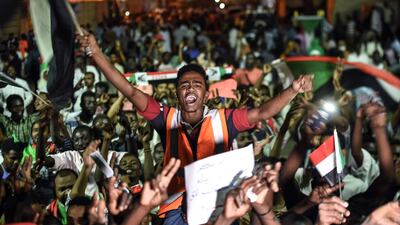Sudan’s ruling transitional military council and a coalition of protesters failed to reach an agreement on Tuesday on the country’s political transition, marking two days of talks with no solution.
Protest leaders called on supporters to prepare for a general strike, saying the military was dragging its feet during negotiations.
A new round of talks to solidify a three-year transitional period began on Monday between the military council and the Declaration of Freedom and Change Forces (DFCF) a union of opposition groups and protesters.
Ratios of representation in a previously agreed upon 300-member parliament are the topic of discussion. Protesters insist on civilian majority and leadership. The military has rejected a civilian leader, citing security reasons as justification for a military leader, according to Satea Al Haj, a DFCF leader.
After six hours of discussion on Monday, the parties remained at an impasse and left the presidential palace in Khartoum with no agreement. Tuesday's talks yielded a similar result, although both sides claimed that a solution was within reach.
"The main point of dispute that remains is concerning the share of representatives of the military and the civilians in the council and who will be the head of the new body," generals and DFCF leadership said a joint statement.
Neither side reported when talks would resume, but DFCF leader Siddiq Yousef told reporters that negotiations are suspended until there is a “breakthrough”.
Since December 2018, protesters have called for a rapid overhaul of the government, resulting in the overthrow of Sudan's long-time autocrat Omar Al Bashir. Despite Mr Al Bashir's overthrow in early April, the public has yet to back down; sit-ins and protests have continued outside the defence ministry's compound in the capital Khartoum.
The Sudanese Professionals Association, an early instigator of protests against Mr Bashir and leader of the DFCF, has sought to expand protests to increase pressure on the military. Demonstrators remain sceptical of the military's pledges of cooperation and have accused the military council of ignoring civilian demands. DFCF vowed to continue protests if the military retains power.
Meanwhile, more strikes were threatened Tuesday afternoon after guards prevented the arrest of the former intelligence chief Salah Qosh. According to Al Rakouba newspaper, Mr Qosh was spotted in Cairo last week in violation of his house arrest imposed by the transitional military council.

